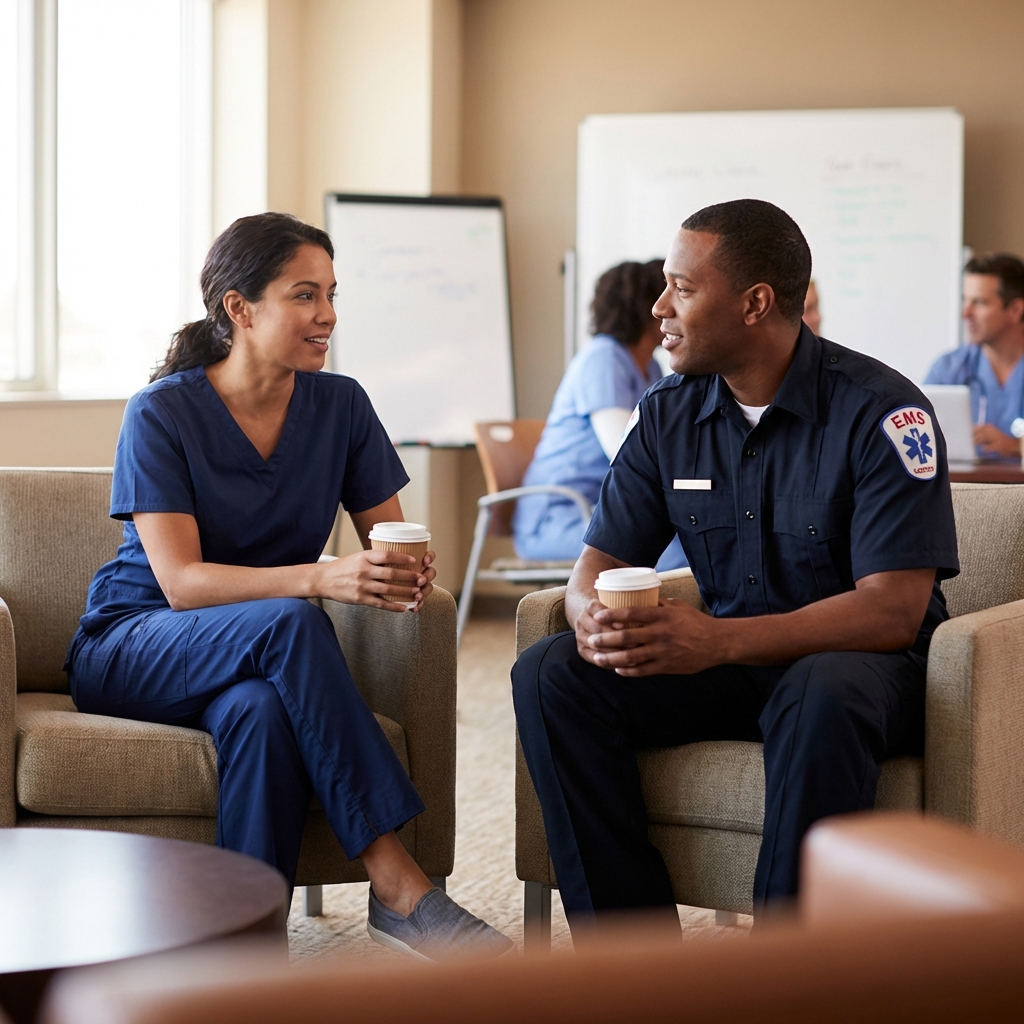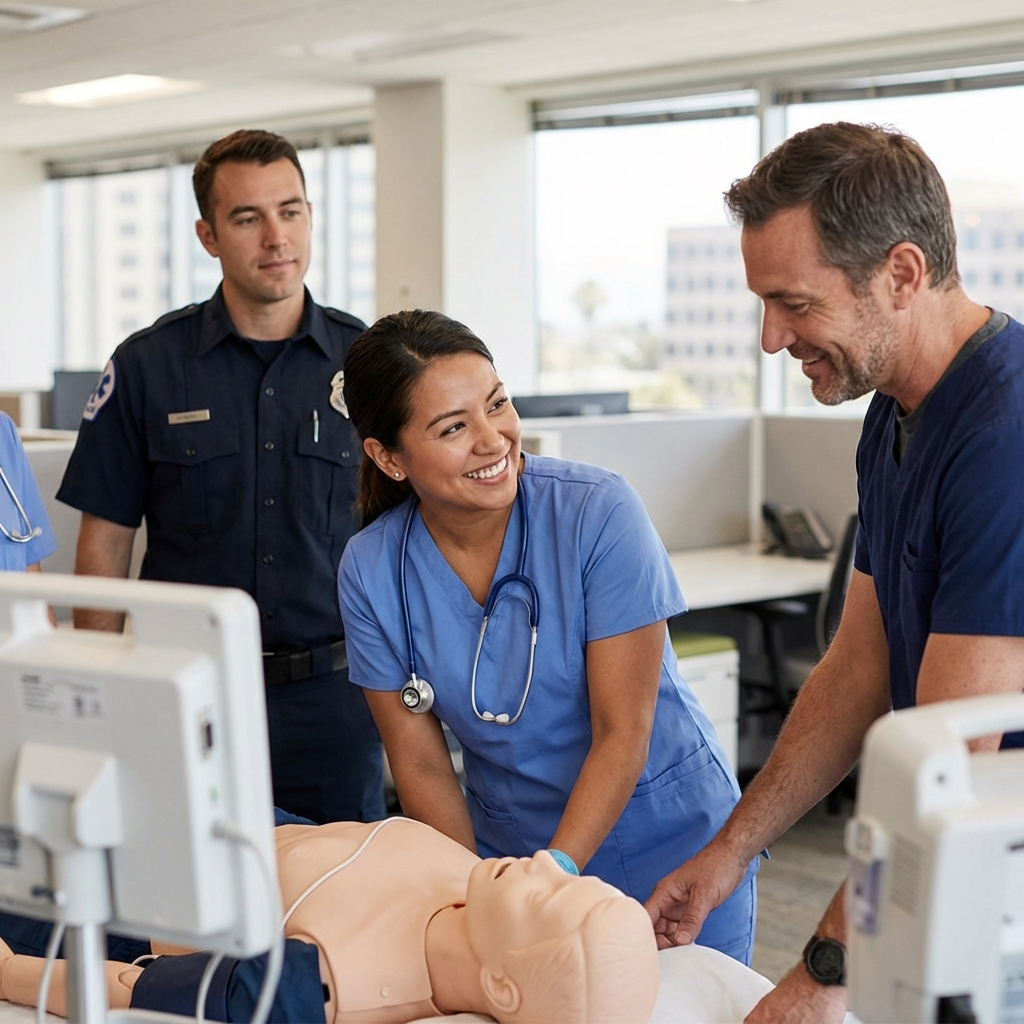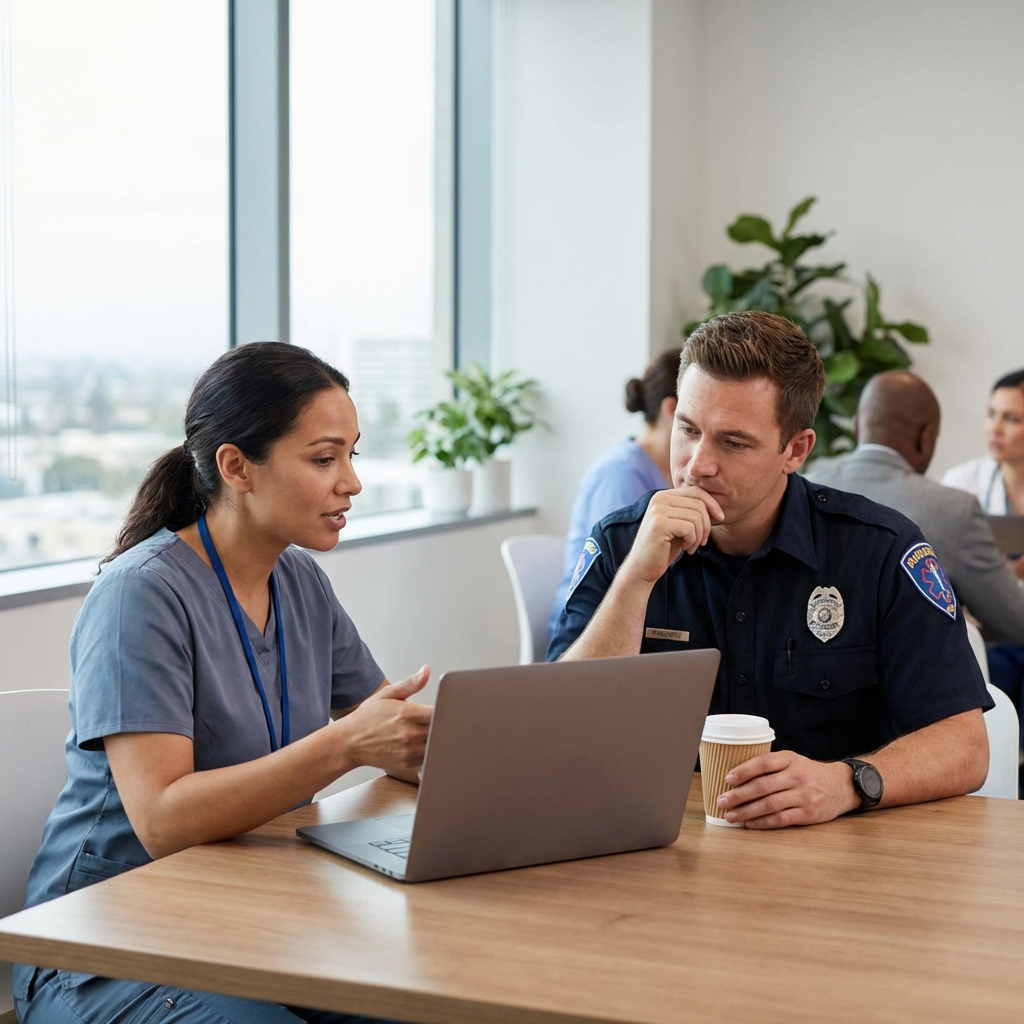Surviving cardiac arrest is nothing short of a miracle, thanks to the life-saving power of CPR. However, the psychological challenges that follow, often hidden behind the success of physical recovery, can be just as critical as other aspects of rehabilitation. Anxiety, PTSD, and depression are not uncommon among CPR survivors, leaving them and their loved ones searching for the right path forward to heal their minds as well as their bodies.
If you or someone you know is navigating life after CPR, understanding the psychological impact is the first step. From recognizing emotional challenges to learning coping strategies, this post will guide you through the tools and support available to rebuild confidence and restore peace of mind.
What You’ll Learn in This Blog:
- The psychological impact of CPR survival—exploring immediate emotional responses and long-term mental health effects.
- Coping strategies for survivors and families—tools, networks, and professional support to ensure holistic healing.
- Why psychological recovery matters—how emotional resilience fosters better physical and overall well-being.
By the end, you’ll gain practical insights, actionable advice, and the encouragement you need to move forward confidently.
Understanding the Psychological Impact of CPR
Immediate Emotional Responses
Surviving cardiac arrest is not just physically traumatic—it’s also an intense emotional upheaval. Many survivors report feelings of fear, confusion, and overwhelming anxiety. This is often rooted in the shock of confronting a life-threatening event and awakening in unfamiliar medical surroundings. These responses, while normal, can leave survivors disoriented and on edge.
Acute stress disorder (ASD) is one of the common immediate psychological conditions experienced after resuscitation. Survivors may struggle with flashbacks of the event or hypervigilance, constantly feeling “on-edge” as their mind replays the fear of that critical moment.
Long-Term Effects on Mental Health
Unfortunately, the psychological impact doesn’t stop there. Studies show that survivors face high risks of developing PTSD, depression, and even survivor’s guilt. Research in the Resuscitation Journal found that:
- Depression can occur in 14% to 45% of CPR survivors.
- Anxiety affects 13% to 61%.
- PTSD impacts 19% to 27%.
Survivors may grapple with existential questions about mortality, life purpose, and how to adapt to what feels like a “new normal.” These long-term effects require proactive attention to prevent them from negatively impacting quality of life.
Coping Strategies for Survivors and Families
Mindfulness-Based Techniques
Mindfulness practices can be incredibly effective in managing stress, reducing hypervigilance, and easing anxiety. These techniques help survivors focus on the present moment, alleviating fears tied to past trauma or future uncertainties. Practical tools include:
- Mindfulness Meditation: Spend 10 minutes daily focusing on your breath or a calming mantra. Apps like Calm or Headspace can guide you through easy-to-follow sessions.
- Journaling: Write about your thoughts and feelings. Not only does this help process emotions, but it also brings clarity and relief.
- Yoga: Gentle yoga routines combine movement with mindfulness, providing physical and mental relaxation.
Consider small steps and consistent practice—mindfulness is a skill that grows over time.
Support Networks
Survivors and their families should remember they’re not alone. Leaning on strong support systems can make all the difference in recovery. Valuable resources to explore include:
- Family and Friends: Share your thoughts and emotions openly with loved ones. Their understanding and support can provide immense comfort.
- Support Groups: Communities like the American Heart Association’s Survivors’ Network connect CPR survivors with others who’ve had similar experiences. These spaces foster encouragement, empathy, and practical advice.
Even virtual forums and online communities offer helpful tools for connecting with others who understand what it means to survive life’s toughest moments.
Lifestyle Adjustments
Healthy habits nurture long-term well-being. Some recommendations for survivors include:
- Physical Activity: While consulting a doctor is key, even light exercise like walking can lift your mood and improve both mental and physical health.
- Balanced Nutrition: A heart-healthy diet rich in fruits, vegetables, and lean proteins not only supports physical recovery but also contributes to cognitive clarity and emotional stability.
- Quality Sleep: Establishing a sleep routine ensures your body and mind get the restorative rest they need to recover.
Reclaiming normalcy through small, sustainable habits is an essential part of the healing process.
Seeking Professional Help
While family and friends offer invaluable support, professional counselors and therapists are uniquely equipped to guide survivors through trauma-related challenges. Consider seeking:
- Therapists Specialized in Trauma: Professionals trained in trauma recovery can help survivors work through distress in a safe, structured setting.
- CBT and EMDR:
- Cognitive Behavioral Therapy (CBT) helps survivors reframe negative thought patterns and regain control.
- Eye Movement Desensitization and Reprocessing (EMDR) is particularly effective at reducing the intensity of traumatic memories.
When choosing a mental health professional, look for experience with health-related stress or trauma. Referrals from doctors or survivor networks can also help you find the right fit.
Why Psychological Recovery is Essential
Healing isn’t only skin deep. Psychological recovery promotes mental well-being, which in turn, aids physical recovery. Emotional resilience reduces stress on the body, improving immune responses and cardiovascular health.
By addressing both the emotional and physical aftermath of CPR survival, individuals can regain their independence, build stronger support systems, and rediscover joy in daily life.
Additionally, survivors who invest in their recovery inspire their families and communities, showing them what perseverance and growth look like.
Empower Others—And Yourself
For readers looking to empower others, CPR certification through trusted organizations can make a life-saving difference in critical situations. Safety Training Seminars offers AHA-certified courses in San Francisco, CA including:
- CPR and First Aid
- Basic Life Support (BLS)
- Advanced Cardiovascular Life Support (ACLS)
- Pediatric Advanced Life Support (PALS)
Taking a CPR course equips you with the skills to save lives while helping you contribute to fostering resilience and recovery within your community.
Moving Forward with Strength
Surviving cardiac arrest is a testament to the incredible resilience of the human spirit. Psychological recovery may be a challenging, nonlinear process, but with the right support, tools, and mindset, healing is possible.
If you or someone you know is a CPR survivor, know that recovery takes time—and that’s okay. No challenge is insurmountable when approached with hope, strength, and a willingness to seek help.
Remember, addressing mental health is just as essential as physical rehabilitation. Think of it as giving your mind the same level of care and compassion as your heart received during CPR.
Encourage someone you know to read this guide, or check out CPR training to take your first step toward supporting not just survival, but holistic recovery.
If you’re looking to build essential skills, BLS CPR Classes in Vallejo provide expert training in life-saving techniques. Additionally, for those seeking certification, the EMSA Course offers comprehensive emergency medical training that equips you to handle various medical emergencies.









